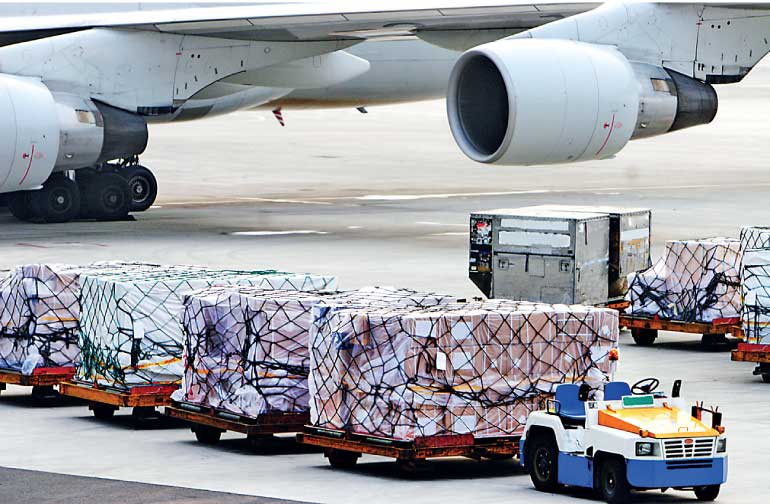Wednesday Feb 18, 2026
Wednesday Feb 18, 2026
Monday, 24 July 2017 00:03 - - {{hitsCtrl.values.hits}}

The latest global air freight data from IATA shows that demand, measured in freight tonne kilometres (FTKs), grew 12.7% in May 2017 compared to the year-earlier period.
This was up from the 8.7% annual growth recorded in April 2017 and is more than three times higher than the five year average growth rate of 3.8%.
Freight capacity, measured in available freight tonne kilometres (AFTKs), grew by 5.2% year-on-year in May 2017.
The continued growth of air freight demand is consistent with an improvement in world trade. This, in turn, corresponds with new global export orders remaining close to a six-year high in May. There are, however, some signs that the cyclical growth period may have peaked. The global inventory-to-sales ratio, for example, has started rising. This indicates that the period when companies look to re-stock inventories quickly, which often gives air cargo a boost, has ended. Regardless of these developments, the outlook for air freight is optimistic with demand expected to grow at a robust rate of 8% during Q3 2017.
“May was another good month for air cargo,” said Alexandre de Juniac, IATA’s Director General and CEO. “Demand growth accelerated, bolstered by strong export orders. And that outpaced capacity growth which should be positive for yields. But the industry can’t afford to rest on its laurels. With indications that the cyclical growth period may have peaked, the onus is on the industry to improve its value proposition by accelerating process modernisation and enhancing customer-centricity.”
All regions, with the exception of Latin America, reported year-on-year double-digit increases in demand in May 2017. Asia Pacific airlines’ freight volumes expanded 11.3% in May 2017 compared to the same period a year earlier and capacity increased by 6.2%. Demand growth has been strongest, between 13-15%, on international routes within Asia as well as between Asia and Europe. Seasonally-adjusted volumes are now 3% above the volumes reached following the 2010 post-global financial crisis bounce-back.
North American carriers posted an increase in freight volumes of 13.9% in May 2017, and a capacity increase of 4.1%. Seasonally-adjusted volumes rose again in May, after a jump in April, indicating signs of a lasting pick up. The strength of the US dollar continues to boost the inbound freight market but is keeping the export market under pressure.
European airlines posted a 15.0% increase in freight volumes in May 2017 and a capacity increase of 5.7%. International freight volumes grew by 15.2% year-on-year in May with airlines benefiting from strong demand on the Europe-Asia market. The ongoing weakness of the Euro persists in boosting the performance of the European freight market which continues to benefit from strong export orders.
Middle Eastern carriers’ year-on-year freight volumes increased 10.2% in May 2017. This was a sharp jump from the 3.1% dip in April. The recent swings in the growth rate appear to be mainly a reflection of the more volatile monthly data last year. Capacity increased 1.7%. Seasonally-adjusted freight volumes maintained their upward trend. Demand between the Middle East and Europe remains strong, increasing 19% so far this year but traffic to Asia has weakened, growing by just over 1%.
Latin American airlines experienced a growth in demand of 6.7% in May 2017 compared to the same period in 2016. Capacity increased by 7.1% over the same period. Seasonally-adjusted volumes grew slightly in May however they remained 12% lower than at the peak in 2014. The region’s carriers have managed to adjust capacity, which has limited the negative impact on the load factor.
African carriers’ posted the largest year-on-year increase in demand of all regions in May 2017 with freight volumes growing 27.6%. Capacity increased by 14.7% over the same time period. Demand has been boosted by very strong growth on the trade lanes to and from Asia which have increased by nearly 57% so far this year.
However seasonally adjusted growth has levelled off in recent months.